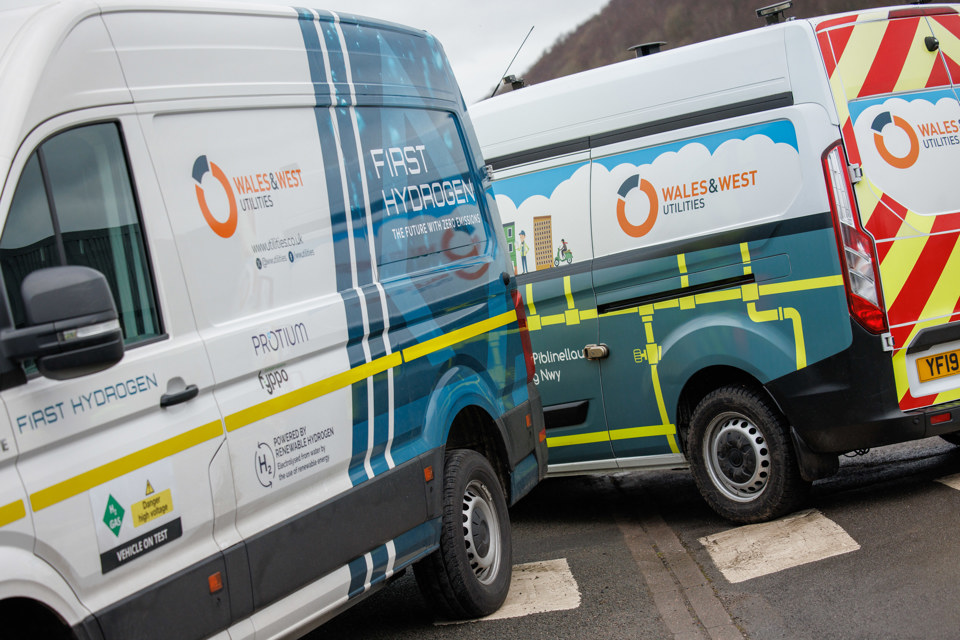Initial findings from trials of a hydrogen-powered van by Wales and West Utilities (WWU) show no decrease in performance or range when operating in colder temperatures.
Data collected from onboard telematics, over a combined distance of 1,029 km, reveal the First Hydrogen fuel-cell electric vehicle (FCEV) has been operating for between six-seven hours per day in temperatures of between 2°C and 17°C, without impacting range.
Battery electric vehicles (BEVs) can suffer with battery degradation in cooler or hotter climates.
Such variation in range makes it challenging for fleet operators to effectively deploy BEVs in certain duty cycles, says First Hydrogen.
Stephen Offley, transport manager at Wales and West Utilities, said: “We are impressed with the performance of First Hydrogen’s FCEV and the trials are giving us a real insight into the benefits and potential use of hydrogen vehicles in our fleet.
“For fleet managers it is important to have a reliable and repeatable range so we can plan daily operations without adjusting for colder weather and building in more time for recharging.
“February is one of the coldest months in south Wales and one of WWU’s busiest for emergency call outs, yet the cooler temperatures have not impacted the vehicle’s ability to respond to all the engineer visits we need it to.”
Maximum vehicle power achieved during WWU trial on 5 February 2024
First Hydrogen has also demonstrated how its fuel cell’s powertrain delivers power, when needed, achieving outputs of 60kW in transient accelerations and in previous trials the vehicle has achieved a peak range of 630km (400 miles).
This indicates the vehicle can manage more demanding duties for WWU, such as carrying heavier payloads, driving over hilly terrain or powering auxiliary equipment (onboard power).

Steve Gill, executive director of automotive at First Hydrogen, said: “Thanks to the team at Wales and West Utilities, who have worked closely with our engineers, we have been able to collect more data from this deployment than in previous trials.
“The trials are generating interesting insight we can use to update our total cost of operation, which is key when securing purchase interest from prospective customers.
“One of the main complaints we hear from BEV drivers is the disparity between WLTP range and performance under real world conditions.
“The fact that our prototype vehicle is performing as expected during real life operations is a strong selling point for fleet operators and builds confidence in FCEVs.”
The trial, which was launched last month, will continue to the end of the month.





















Login to comment
Comments
No comments have been made yet.